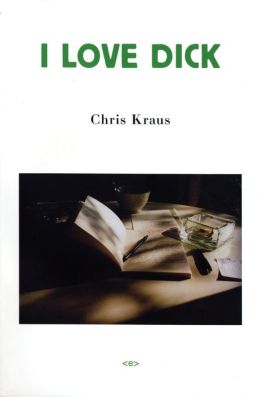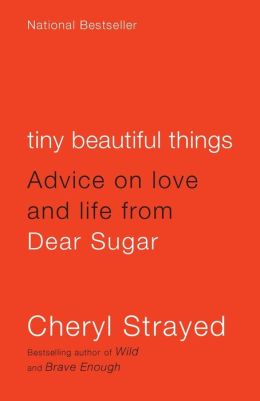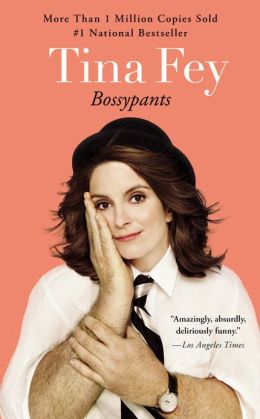Elissa Bassist edits the Funny Women column on TheRumpus.net. Her writing has appeared in The New York Times, The Paris Review Daily, NYMag.com, The Daily Beast, McSweeney's Internet Tendency, Creative Nonfiction, Salon, The Rumpus, and most recently in the anthology Get Out of My Crotch! Twenty-One Writers Respond to America’s War on Women’s Rights and Reproductive Health. Follow her on Twitter @elissabassist, and visit elissabassist.com for more literary, feminist, and personal criticism. Have you ever read “Joseph Epstein’s Lifetime Reading Plan”? You should read it. It’s an essay about the problems of telling other people what to read. It begins with Epstein’s student who, about to graduate from college, began “asking people whom he thought well-read to make lists of books that he ought to read” because he felt there were “so many enormous gaps in his education.” Epstein writes: “When someone asks you to make a list of books for him to read he is, whether he knows it or not, really asking, ‘How do I become an educated person?’ Now this is a tricky question.”
Who am I to say how you should educate yourself and spend your time? I am someone who saw Magic Mike three times in theaters.
Epstein says many wonderful things, including, “When it comes to reading, though, nearly everyone feels, or ought to feel, inadequate in one way or another. . . How much better just to relax in one’s inadequacy?” (I’d like to swap “When it comes to reading” with “When it comes to being alive. . .”) His advice: skip the old, boring books, if you want; what you used to find boring may not be boring ten years from now; get over the preoccupation to read “what’s hot now”; reread your favorites, or don’t; don’t give book advice; don’t take book advice.
Below is an inadequate list of books eschewing everything above.
Read I Love Dick by Chris Kraus. It’s not what you think. I half-wish it were what you thought. It’s a contemporary epistolary novel/memoir/feminist manifesto/art project where the following happens: a husband and wife meet a man named Dick; the wife connects with Dick and refers to their connection as a “conceptual fuck”; the wife writes Dick a letter and the husband proofs it and suggests changes and also writes his own; together, both rewrite their first letters until Chris has a book of unsent letters. Eileen Myles writes in the intro: “In Chris’s case, abjection…is the road out from failure. Into something bright and exalted, like presence…Her living is the subject, not the dick of the title…”
Read Tiny Beautiful Things by Cheryl Strayed. If anyone ever has a problem, I tell her or him to read this book because it answers all of them. Steve Almond writes in the introduction: “I happen to believe that America is dying of loneliness, that we, as a people, have bought into the false dream of convenience, and turned away from a deep engagement with our internal lives—those foundations of inconvenient feelings…within the chaos of our shame and disappointment and rage there is meaning, and within that meaning is the possibility of rescue.”
Almond says we need books like TBT because “in the private kingdom of our hearts, we are desperate for the company of a wise, true friend. Someone who isn’t embarrassed by our emotions, or her own, who recognizes that life is short and that all we have to offer, in the end, is love.”
Read Bossypants by Tina Fey because: Tina Fey.
If you’re like me, you often wonder about The Purpose of Literature. Some people knock memoirs as being a Lesser Art, but (and now I paraphrase David Foster Wallace) literature is not about showing off and performing verbal and storytelling acrobatics—literature ought to be a service to a reader’s interior life. A writer’s personal story and emotional generosity reach me more than any plot labyrinth, and so I say read Traveling Mercies by Anne Lamott, a book that taught me how to pray. I’m a non-practicing Jew who attends religious gatherings never, and now I say two prayers every night: Thank you for [fill in the blank] and Help me with [fill in the blank]. Mary Karr’s Lit also influenced me in this department.
Please, as a personal favor, will you read everything Lorrie Moore has written? This includes her first collection of short stories, Self-Help, her first novel, Anagrams, and her second, Who Will Run the Frog Hospital, and her other short story collections Like Life and Birds of America.
Geek Love by Katherine Dunn is the most fucked-up book I’ve ever read, and I recommend it for this reason.
Read Leaving the Atocaha Station, poet Ben Lerner’s first novel, because every sentence is a perfect sentence.
Every short story George Saunders writes, especially in Pastoralia and Tenth of December, makes me laugh out loud.
You have to read Ender’s Game by Orson Scott Card and Invisible Monsters by Chuck Palahniuk and Do Androids Dream of Electric Sheep by Philip D. Dick.
I’ve written before about my feelings for David Foster Wallace’s Infinite Jest. When I read D.T. Max’s DFW biography, Every Love Story Is a Ghost Story, I felt privy to the inner innerness of a writer who restructured my world and made me feel stuff. Here are two favorite DFW quotations from the book:
1. “I always had great contempt for people who bitched and moaned about how ‘hard’ writing was, and how ‘blockage’ was a constant and looming threat. When I discovered writing in 1983 I discovered a thing that gave me a combination of fulfillment (moral/aesthetic/existential/etc.) and near-genital pleasure I’d not dared hope for from anything.”
2. “We’d probably most of us agree that these are dark times, and stupid ones, but do we need fiction that does nothing but dramatize how dark and stupid everything is? In dark times, the definition of good art would seem to be art that locates and applies CPR to those elements of what’s human and magical that still live and glow despite the times’ darkness.”
It goes without saying (well, I’ve already said it a lot already) that I recommend all of Wallace’s books. They are for those who have ever felt misunderstood or ignored or lonely or bored or broken. They’ll make you feel human in our increasingly digital world.
One last piece of book advice: Never read Fifty Shades of Grey. Every time someone reads Fifty Shades of Grey, a real book dies.









